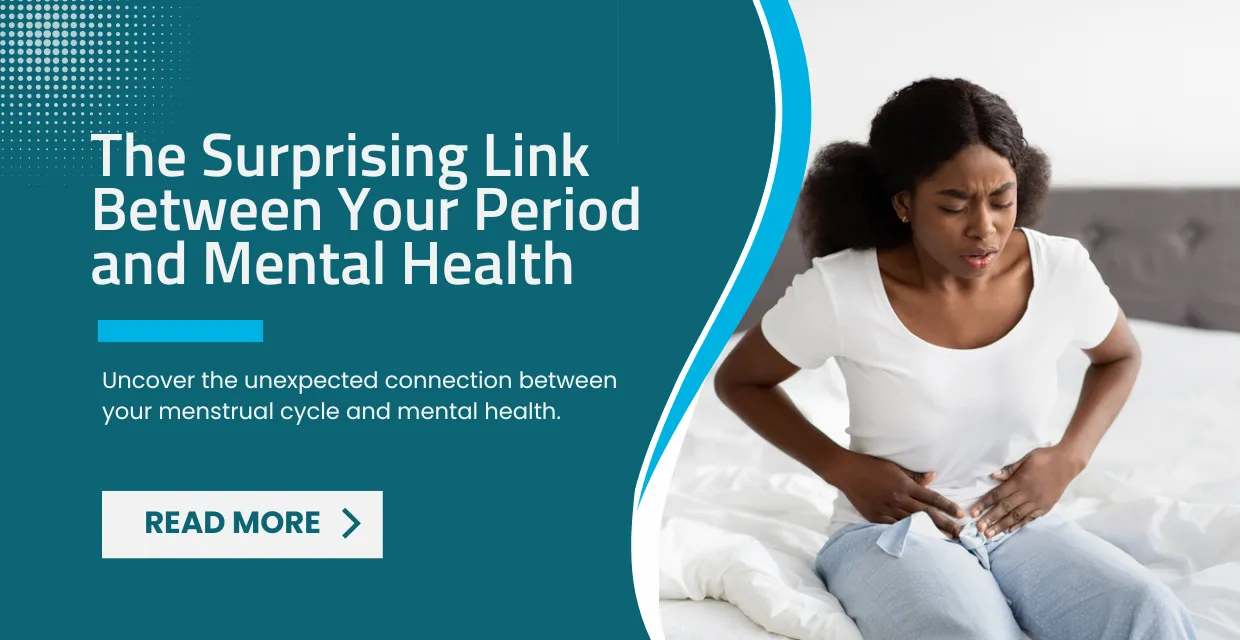Menstruation is a natural part of a woman's life, but did you know it can also have an impact on mental health? Understanding how hormones fluctuate during the menstrual cycle and the influence they have on mood can help you navigate this aspect of your health more effectively.
The Menstrual Cycle and Emotional Well-being
The hormonal changes during the menstrual cycle:
The menstrual cycle consists of different phases, each characterized by specific hormonal changes. During the first half of the process, estrogen levels gradually rise, promoting a sense of well-being and positivity. However, as the cycle progresses and approaches menstruation, both estrogen and progesterone levels drop, potentially leading to mood swings, irritability, and even depression.
Premenstrual Syndrome (PMS):
Premenstrual Syndrome, commonly known as PMS, is a condition experienced by many women before their period. PMS is associated with a range of physical and emotional symptoms, such as bloating, breast tenderness, fatigue, and mood swings. During this phase, hormonal changes and imbalances can significantly impact mental health, leading to heightened emotional sensitivity and irritability.
The Impact of Hormones on Mood
Estrogen and serotonin:
Estrogen plays a crucial role in regulating serotonin, a neurotransmitter known for its influence on mood. When estrogen levels are high, serotonin levels tend to be more stable, promoting a positive mood. However, when estrogen levels decline, such as during the premenstrual phase, serotonin levels can also decrease, contributing to feelings of sadness or anxiety.
Progesterone and gamma-aminobutyric acid (GABA):
Progesterone, another hormone involved in the menstrual cycle, affects the production of gamma-aminobutyric acid (GABA), a neurotransmitter that helps regulate anxiety and stress. Low progesterone levels can disrupt GABA production, potentially increasing feelings of anxiety or tension.
Cortisol and stress:
Cortisol, often referred to as the stress hormone, can interact with menstrual hormones, intensifying mood disturbances during the menstrual cycle. When stress levels are high, cortisol production increases, exacerbating symptoms such as irritability, mood swings, and anxiety during menstruation.
Coping Strategies for Managing Mental Health During Menstruation
Lifestyle modifications:
Implementing certain lifestyle changes can positively impact mental health during menstruation. Engaging in regular exercise, consuming a balanced diet, and prioritizing sufficient sleep can help stabilize mood and reduce the severity of emotional symptoms.
Stress management techniques:
Effective stress management techniques can significantly alleviate mental health challenges during the menstrual cycle. Practicing mindfulness, meditation, deep breathing exercises, or yoga can help reduce stress levels and promote a sense of calm.
Seeking support:
Don't hesitate to seek support from your loved ones or healthcare professionals. Talking about your emotions and experiences can provide emotional relief and valuable guidance. Surrounding yourself with understanding and supportive individuals can make a significant difference in managing your mental well-being.
Tracking and self-care:
Keep track of your menstrual symptoms and emotions to identify patterns and anticipate mood changes. This awareness allows you to implement personalized self-care routines, such as engaging in activities that bring you joy, practicing relaxation techniques, or taking quiet time for yourself.
Conclusion
The link between your period and mental health is more significant than you may have realized. Understanding how hormonal fluctuations affect mood during the menstrual cycle empowers you to take proactive steps in managing your emotional well-being. By adopting coping strategies, making lifestyle modifications, seeking support, and practicing self-care, you can navigate the challenges of menstruation with greater ease and improve your overall mental health. Embrace the power of knowledge and self-awareness to create a healthier and more balanced experience during your menstrual cycle.
Remember, if you find that your symptoms are severely impacting your daily life or if you're experiencing persistent feelings of sadness or anxiety, it's essential to consult with a healthcare professional. They can provide further guidance and support tailored to your specific needs.
Take charge of your mental health during menstruation and embrace the surprising connection between your period and well-being. By prioritizing self-care and implementing strategies to manage emotional changes, you can embark on a more balanced and fulfilling journey through your menstrual cycle.



